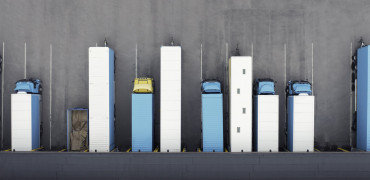Decarbonisation on a national scale means cutting carbon emissions from every part of the UK economy.
Carbon is a greenhouse gas (GHG), which traps heat in Earth’s atmosphere, creating global warming and climate change.
This effect has been recognised as a worldwide emergency, and many countries have agreed to tackle emissions to mitigate these effects.
In 2019 the UK became the first country in the world to set itself a legally-binding target to achieve net zero greenhouse gas emissions by 2050.
A significant part of achieving this goal means reducing our reliance on fossil fuels such as coal, oil and gas because they produce carbon when burned.
Decarbonisation is closely linked to energy efficiency of our buildings and our future heating systems
The current situation
In the UK, we’ve made big strides in cutting fossil fuel use. This has largely been through closing coal-fired power stations to decarbonise our electricity – known as ‘greening the grid’.
In the past 12 months, only 1.7% of our electricity was generated from coal when ten years ago that figure was closer to 40%. And by 2024 the UK will no longer use any coal for generation.
Currently, gas-fired power stations are the main source of UK electricity – around 40% in the last 12 months. As gas is also a fossil fuel (though it produces less carbon on burning than coal) the focus now is on finding alternative energy sources.
Wind power is ramping up, with 20% of our electricity sourced from offshore and onshore turbines in the past year. And we are also investing in new nuclear power stations, with 16% of electricity sourced from existing sites.
However, the UK doesn’t just rely on gas for electricity production. It is also the source of heating and hot water for most of our homes and many of our other buildings. BEIS figures show that 85% of households and 65% of non-domestic buildings use gas for heating.
The new challenge
Reducing our reliance on gas for heating creates a new challenge.
If we are to reach our Net Zero goal on schedule, we can’t simply swap one power source for another.
We must be more efficient in how we use that electricity, otherwise the demand on the grid will be too great.
Decarbonisation is therefore closely linked to energy efficiency of our buildings and our future heating systems.
The solution
Electric heat pumps have been highlighted as an ideal alternative to the gas boiler. They provide a highly effective way to tap into our greener electricity grid to provide energy efficient heating in both domestic and commercial buildings.
An air source heat pump can produce 3kW of heat for every 1kW of electricity input which means they not only support decarbonised heating, but also make better use of our decarbonised electricity.
And in recent years, we have also seen products such as Mitsubishi Electric’s commercial heat pump range which can provide heating and hot water up to 90oC on a commercial scale, so heat pumps can be used in a wide range of buildings.
We are also seeing heat pumps such as the Ecodan Hydrodan being applied in ambient heat loops for district heating, as well as the development of heat pump chillers to provide low-carbon heating, hot water and cooling for commercial buildings. So heat pump technology is flexible and advanced enough to help make decarbonisation more achievable.
Final thoughts
In my next article, I’m going to discuss how to embrace our decarbonised future, including the Public Sector Decarbonisation Scheme (Salix funding).
And in part 3, I will discuss some existing decarbonisation projects which have transformed existing estates.
Please look out for these over the next few weeks.
In the meantime, if you need any support with your decarbonisation projects, please get in touch with me, or the M&E contractor team.
Dave Archer is National M&E Manager




